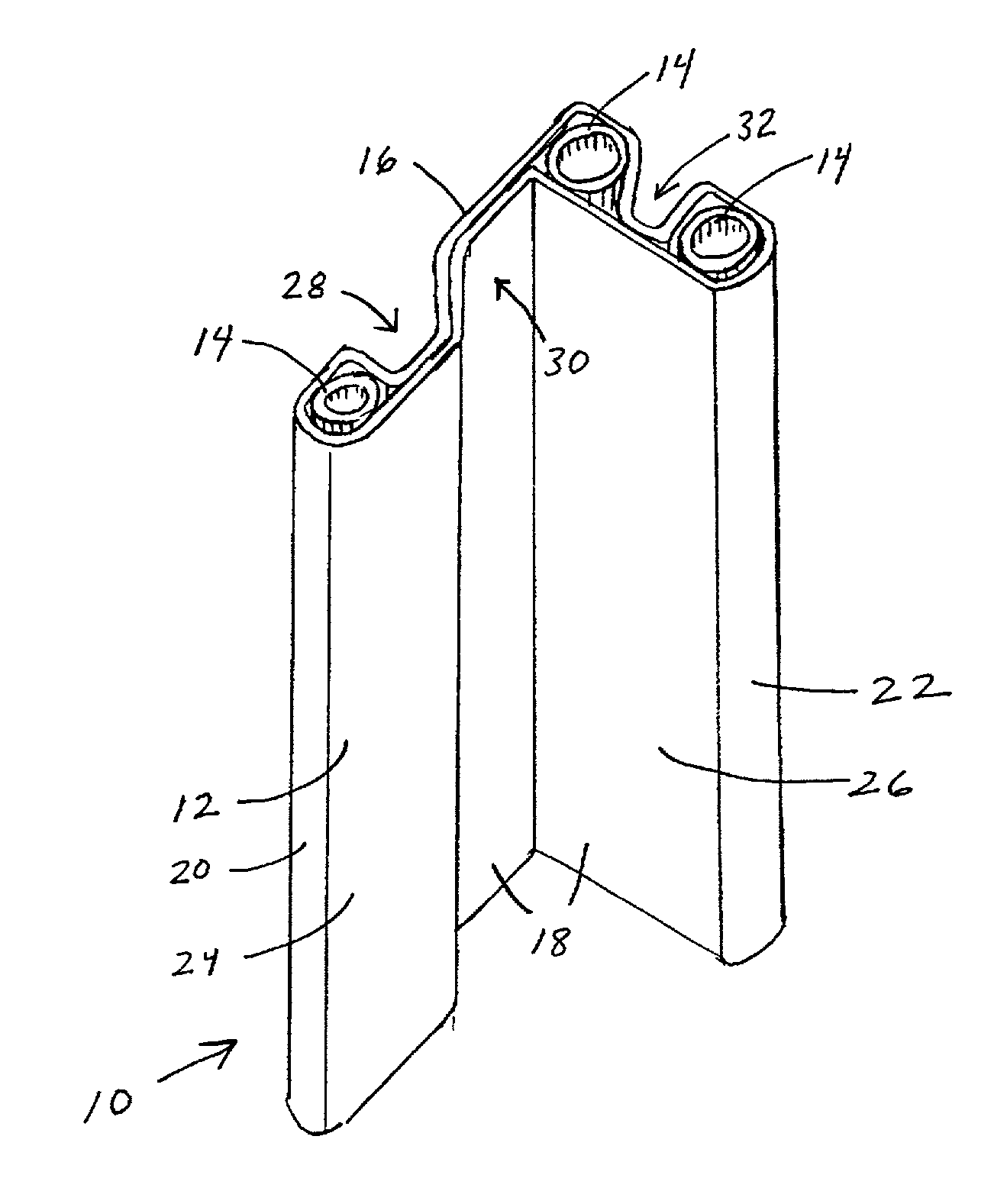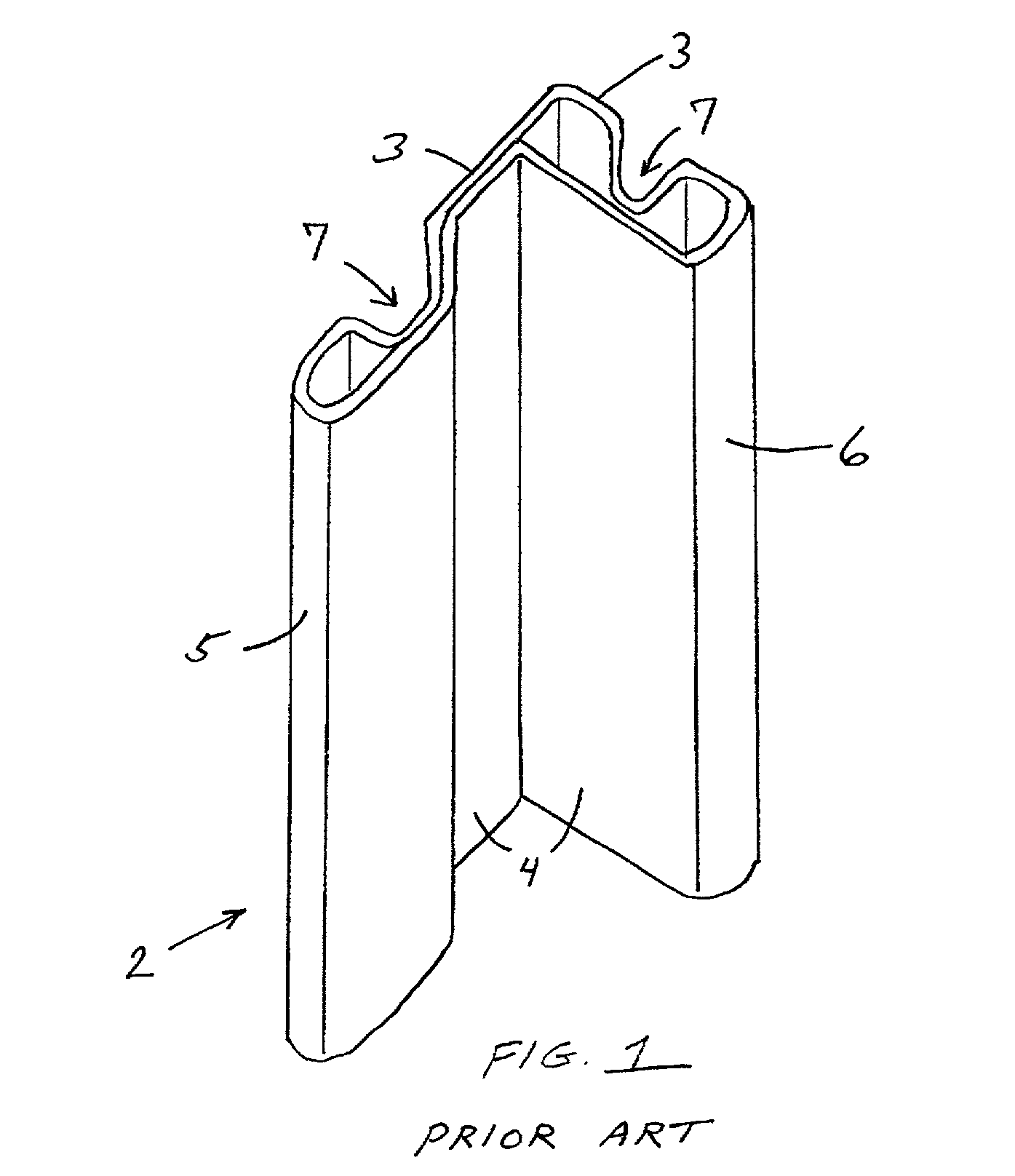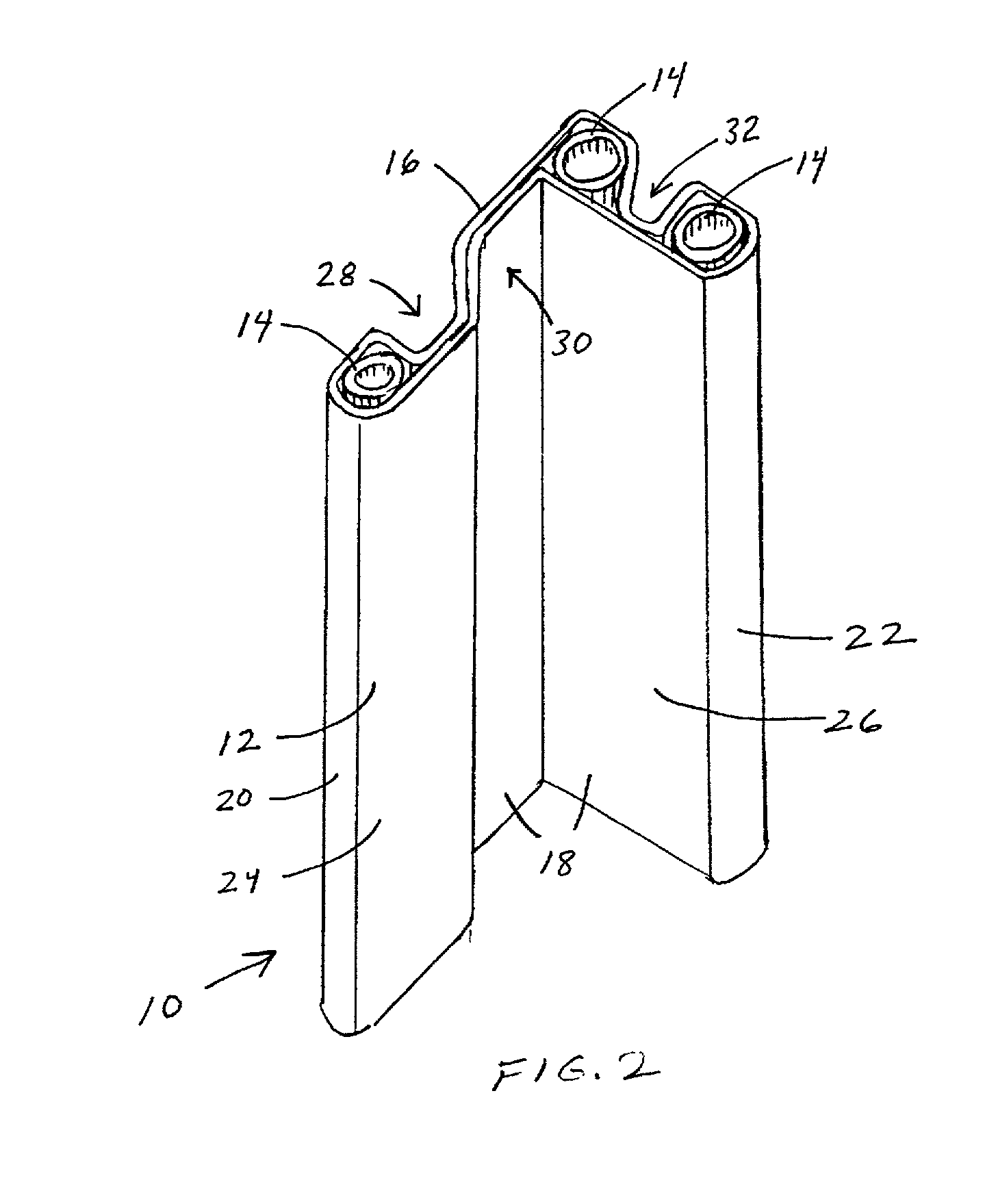Reinforced packaging support post assembly
a support post and reinforcement technology, applied in packaging, packaging, paper/cardboard containers, etc., can solve the problems of increasing the likelihood that the corner posts will buckle under the increased axial compression, allowing the package to crush, and not always providing sufficient protection against such large lateral forces. , to achieve the effect of improving the resistance to axial (vertical) compression forces
- Summary
- Abstract
- Description
- Claims
- Application Information
AI Technical Summary
Benefits of technology
Problems solved by technology
Method used
Image
Examples
Embodiment Construction
[0040] Sidewall (lateral) compression tests were performed on convolutely wound paperboard L-shaped corner posts having one leg shorter than the other (similar to the corner post shown in FIG. 2) with and without spirally wound paperboard reinforcing tubes inserted into the shorter leg. Sidewall displacement (bending) was plotted as a function of sidewall compression force. At 500 lbs. lateral compression force, the average sidewall displacement was about 1.2 inches without the reinforcing tubes, but less than 1.0 inch with the reinforcing tubes.
[0041] Additional sidewall compression tests were performed on L-shaped corner posts with and without a reinforcing tube inserted into the longer leg. At 500 lbs. lateral compression force, the average sidewall displacement was about 1.35 inches without the reinforcing tubes, but only about 1.0 inch with the reinforcing tubes. The test results indicate that the addition of reinforcing tubes to an L-shaped corner post significantly increases ...
PUM
 Login to View More
Login to View More Abstract
Description
Claims
Application Information
 Login to View More
Login to View More - R&D
- Intellectual Property
- Life Sciences
- Materials
- Tech Scout
- Unparalleled Data Quality
- Higher Quality Content
- 60% Fewer Hallucinations
Browse by: Latest US Patents, China's latest patents, Technical Efficacy Thesaurus, Application Domain, Technology Topic, Popular Technical Reports.
© 2025 PatSnap. All rights reserved.Legal|Privacy policy|Modern Slavery Act Transparency Statement|Sitemap|About US| Contact US: help@patsnap.com



